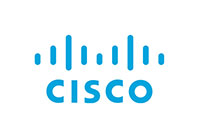The Cisco Data Center Nexus Dashboard Essentials training teaches you how to plan, implement, manage, operate, monitor, and troubleshoot the infrastructure of your data centers using the Cisco Nexus Dashboard platform.
The goal of this training is to provide fundamental knowledge for the Cisco Nexus Dashboard platform. It discusses the components and the structure of the platform, as well as how to plan for the installment and deployment, looking at the physical and virtual resource requirements, licensing, connectivity, cluster size, and software stack. Additionally, you will be acquainted with the Graphical User Interface (GUI) and the different functions to create and manage sites in the Cisco Nexus Dashboard. You will learn how to monitor, troubleshoot, and administer the platform, covering the authentication and authorization of the administrators’ access. This training also earns you 26 Continuing Education (CE) credits toward recertification.






